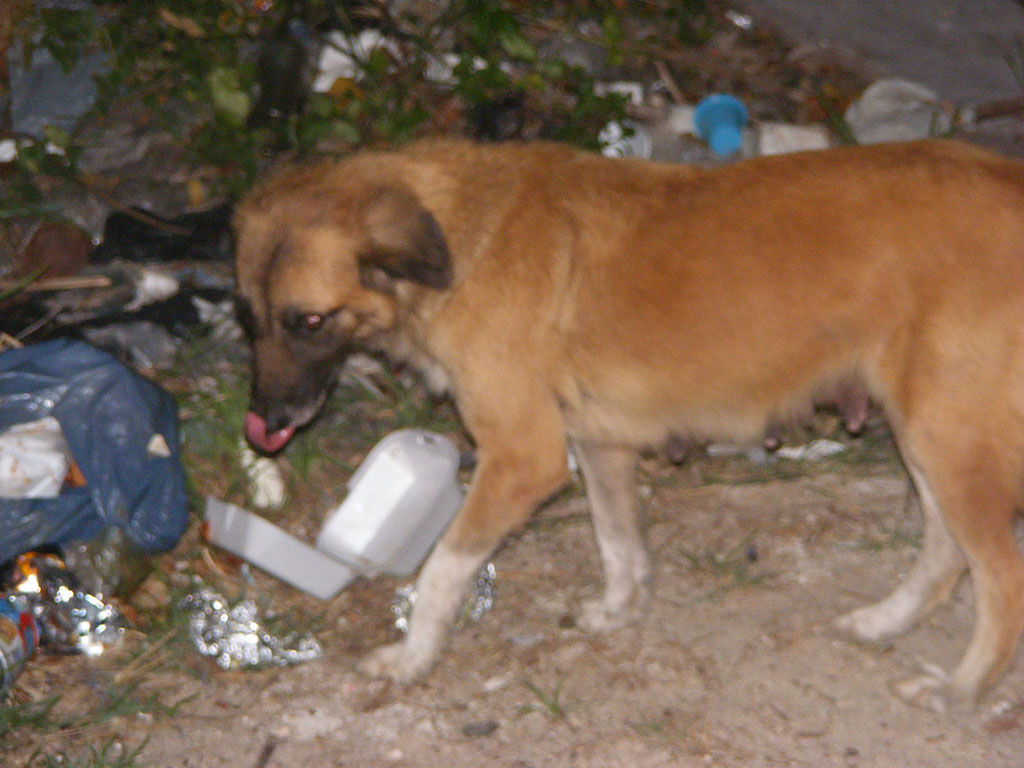The Ministry of Health is working along with the SAGA Humane Society are on a mass Rabies campaign for San Pedro. Spearheaded by San Pedro Health Inspector Miss Lisa Tillett, the initiative hopes to issue rabies vaccination to some 900 dogs throughout the month of October. The activity comes after a notable increase in reported dog bites through the past months. In addition to the increase in dog bites, Lisa stated that the venturing by developments into unchartered mangrove wetlands, exposing animals such as raccoons, only adds to the threat of rabies infections to both dogs and consequently human beings.
 The house to house visits started during the first week of October and will continue through the end of the month on Tuesdays and Wednesdays. In order to facilitate for pet owners that are not at home during the day but would want their dogs to be vaccinated, Miss Tillett, along with volunteers chose two Saturdays during the month to offer the service at the Central Park.
The house to house visits started during the first week of October and will continue through the end of the month on Tuesdays and Wednesdays. In order to facilitate for pet owners that are not at home during the day but would want their dogs to be vaccinated, Miss Tillett, along with volunteers chose two Saturdays during the month to offer the service at the Central Park.
The first was held on Saturday October 6th. During the first week of the campaign, the team managed to issue 148 vaccinations to 145 dogs and 3 cats. Of these, 98 were males and 47 were females.
During the second week, the team targeted San Pablo, Coconut Drive and the Airstrip area for October 9th and 10th. This all leads up to this Saturday October 13th, when the team will be at the Central Park from 9am through 2pm offering the rabies vaccination service once more.
On October 16th and 17th, the team is scheduled to be in the Town Core area and San Pedrito. On the 23rd and 24th they will hit San Juan and Boca del Rio while the 30th and 31st will find them targeting San Mateo.
Rabies is a viral disease that causes inflammation of the brain in warm-blooded animals. The disease can be transmitted from one species to another, such as from dogs to humans, commonly by a bite from an infected animal. For a human, rabies is almost invariably fatal if post exposure prophylaxis is not administered prior to the onset of severe symptoms. The rabies virus infects the central nervous system, ultimately causing a disease in the brain followed by death. The incubation period of the disease is usually a few months in humans, depending on the distance the virus must travel to reach the central nervous system. Once the rabies virus reaches the central nervous system and symptoms begin to show, the infection is virtually untreatable and usually fatal within days. Early-stage symptoms of rabies are malaise, headache and fever, progressing to acute pain, violent movements, uncontrolled excitement, depression, and hydrophobia. Finally, the patient may experience periods of mania and lethargy, eventually leading to coma. The primary cause of death is usually respiratory insufficiency. Rabies annually causes about 55,000 human deaths worldwide, mostly in Asia and Africa. Roughly 97% of human rabies cases result from dog bites. (http://en.wikipedia.org/wiki/Rabies)
While this campaign is going on for the month of October, Health Inspector Tillett may be contacted at telephone number 605-6495 or 650-0661for further information.

Share
Read more

